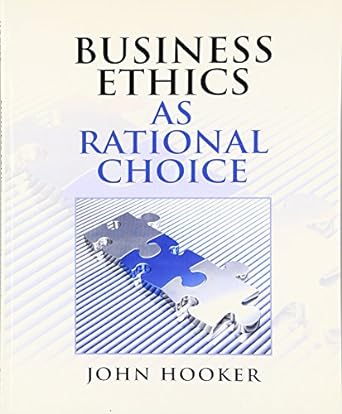The MasterDept lockbox problem.23 MasterDebt, a credit card company, receives thousands of payment checks from cardholders every
Question:
The MasterDept lockbox problem.23 MasterDebt, a credit card company, receives thousands of payment checks from cardholders every month. The company wants to exploit float so as to earn as much as possible in interest and fees. Float is the time lapse between the deposit of a payment check and crediting the amount to MasterDept. Cardholders pay interest on any outstanding balance, and MasterDebt wants to maximize float to collect more interest from them, and perhaps late fees as well.
The plan is to maximize float by establishing lockboxes in several cities. Cardholders in each region will be instructed to send their checks to a certain lockbox, perhaps a distant one to maximize float. The company is considering six cities as possible lockbox locations, each of which carries a certain annual fixed cost. The company asked its technical staff to select lockbox locations and assignments that maximize the difference between interest earned from float and the cost of the lockboxes. The solution is far from obvious, but the lockbox problem can be formulated as an uncapacitated facility location problem, a well-known mathematical model used in operations research. Solution of the problem reveals that the location of the lockboxes makes a substantial difference in net benefit to the company.
Lockbox location problems have been solved for many years but raise ethical issues. The interest gained by MasterDebt is interest lost by its customers. One can ask whether MasterDebt has the right to collect this interest at the customer’s expense.But this is only an assertion, not an argument.Even if we accept it,we must decide how much delay is artificial. Two days? Three days? There are also legal issues involved, partly due to new credit card regulations recently enacted in the United States.24 We take it for granted that credit card companies should abide by regulations. Let’s focus here on what would be their ethical obligations without specific laws governing the float period.Your task: arrive at an ethical lockbox location and assignment policy.
Hint. Delay in processing checks incurs social costs because it introduces uncertainty, makes it more difficult for people to manage cash flow, and may result in less-than-optimal use of their funds. The interest earned by the credit card company due to delay may be a rough indication of these social costs, which can be balanced against the cost of locating lockboxes close to customers. Utility might be roughly maximized by modifying the facility location model so that it minimizes the sum of the interest cost to consumers and the cost of the lockboxes. You should also apply the generalization principle and virtue ethics (think about why we have financial services professionals).
Step by Step Answer:






